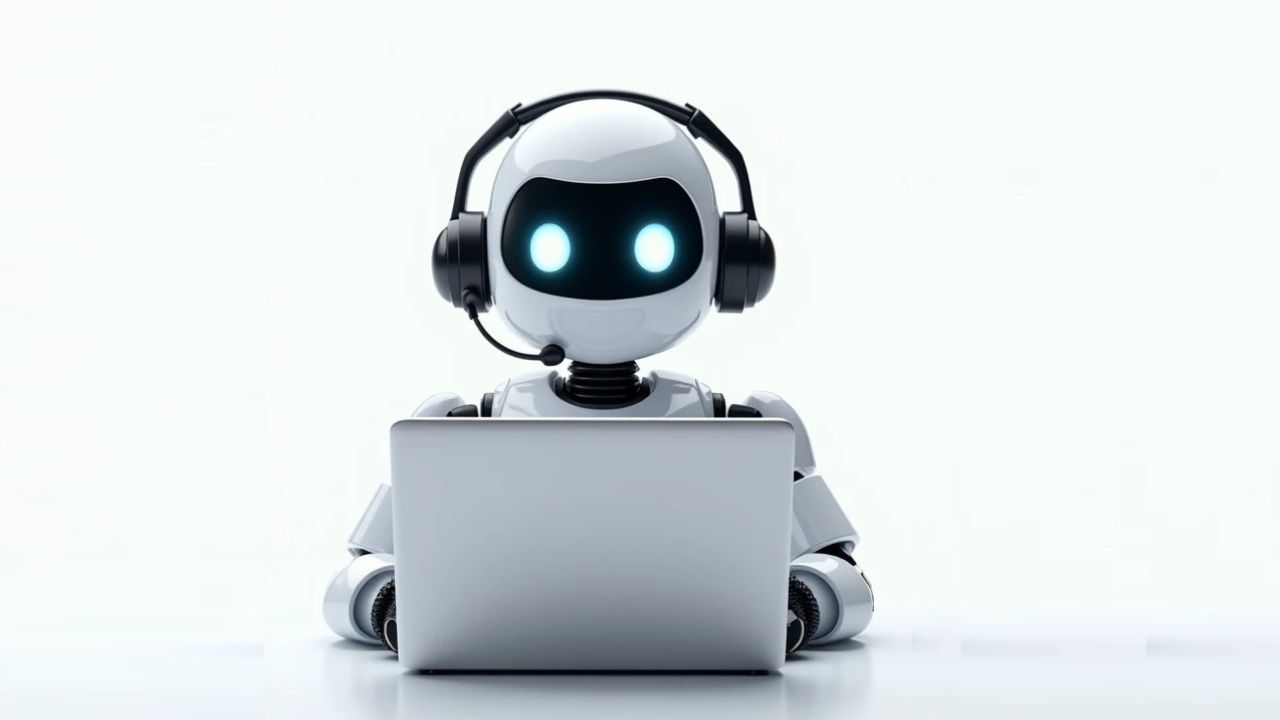Introduction to AI and Its Impact on Employment
Artificial intelligence (AI) has rapidly evolved over the last few decades, fundamentally transforming various sectors of the workforce. As AI technologies continue to advance, they are increasingly being integrated into numerous industries, including manufacturing, healthcare, finance, and customer service. This integration not only enhances efficiency but also drives innovation, leading to improved productivity and potentially increased profits. However, alongside these benefits, there are significant challenges, particularly concerning employment and job security.
One of the most critical implications of AI adoption is the potential disruption of job markets. Many professions that rely heavily on routine tasks and data processing are particularly susceptible to automation. For instance, roles such as data entry clerks, telemarketers, and even some aspects of legal and accounting practices could soon become obsolete due to the capabilities of AI systems. These technologies can process vast amounts of information quickly and accurately, making them well-suited for tasks traditionally performed by humans.
Moreover, the fluctuating dynamics of the labor market raise concerns about the skills gap that may arise as certain jobs decline while others emerge. As industries evolve, the demand for new skills will become increasingly relevant. Workers will need to adapt to these changes by investing in their education and training to remain competitive in an AI-driven economy. This shift emphasizes the importance of understanding which professions are at risk and the necessary steps to mitigate the negative effects on employment.
Given these developments, it is crucial for stakeholders, including policymakers, educators, and businesses, to address the multifaceted challenges presented by AI. By fostering a proactive dialogue about the future of work and the role of AI, a more sustainable and equitable employment landscape may be achieved. In conclusion, recognizing the interplay between AI advancements and employment enables a comprehensive view of its potential effects on the workforce.

The Role of Automation in Job Displacement
Automation has significantly changed the landscape of traditional employment over recent years. By employing advanced technologies, primarily artificial intelligence (AI), many sectors are experiencing a transformation in how tasks are completed. Automation refers to the use of machines or software to perform tasks that were once carried out by humans. This innovation has proven effective in enhancing efficiency, reducing costs, and minimizing human error, leading to a notable shift in the labor market.
In various industries, such as manufacturing, retail, and logistics, automation is quickly taking center stage. For instance, in manufacturing, robots and AI systems are increasingly utilized for assembly line work, drastically reducing the need for manual labor.
Tasks that were traditionally performed by factory workers, such as welding or painting, are now being executed by machines, thereby streamlining processes and increasing productivity. This shift inevitably leads to a decline in demand for these types of labor positions.
Retail is another sector profoundly impacted by automation. The rise of self-checkout systems and automated inventory management has altered the roles of cashiers and stock clerks. As consumers become more accustomed to utilizing technology for purchasing, the necessity for human staff diminishes. Similarly, in the logistics sector, automated warehousing systems have streamlined the shipping and receiving processes, reducing the need for labor-intensive roles like forklift operators and warehouse workers.
The implications of these changes are significant, as they raise concerns about widespread job displacement. As automation continues to advance, traditional roles across various sectors may become obsolete. It is crucial for workers to adapt by acquiring new skills that align with the evolving job market, as the integration of AI and automation reshapes employment landscape.
Top 10 Professions on the Decline Due to AI
The rapid advancement of artificial intelligence (AI) technologies is fundamentally altering the workforce, leading to the decline of numerous professions. As AI systems become increasingly sophisticated, several jobs are expected to face obsolescence. Below, we examine ten professions that are particularly at risk due to various factors such as efficiency, automation, and shifting consumer behavior.
1. **Data Entry Clerks**: This profession has already seen significant declines, as AI can efficiently process and input vast amounts of data faster than any human. Machine learning algorithms excel in recognizing patterns and extracting information, making data entry largely automated.
2. **Travel Agents**: With the rise of online booking platforms and AI-powered recommendation systems, the traditional role of travel agents is being diminished. Consumers can easily plan their own trips using algorithms that tailor options according to their preferences.
3. **Telemarketers**: Telemarketing is being replaced by AI-driven communication strategies, such as chatbots and automated calls, which are often more effective and less intrusive. These systems can engage with customers at scale without human intervention.
4. **Bank Tellers**: The evolution of online banking and automated teller machines (ATMs) has reduced the need for bank tellers, as customers increasingly prefer digital transactions over in-person services.
5. **Customer Service Representatives**: AI chatbots are being deployed to handle customer inquiries, often providing instant responses 24/7. This shift is leading to a decline in demand for human customer service representatives.
6. **Manufacturing Workers**: Robotics and automated machinery are revolutionizing manufacturing processes. High-level precision and the ability to operate consistently without fatigue position robotic solutions as more favorable than human labor.
7. **Warehouse Workers**: The logistics sector is leveraging AI technology, including drones and automated systems, to enhance efficiency in warehousing. This trend is causing a significant reduction in the need for manual labor within warehouses.
8. **Proofreaders**: Advanced AI grammar and spell-check tools now serve as reliable editors, minimizing the necessity for human proofreaders in many publishing scenarios.
9. **Retail Cashiers**: Various retailers are adopting self-checkout technologies and automated payment options, which are gradually phasing out the role of cashiers in stores.
10. **Market Research Analysts**: With AI’s ability to analyze consumer data and predict market trends, many traditional tasks performed by market research analysts are being superseded by automated systems that can deliver insights rapidly.
In conclusion, the professions mentioned above illustrate the profound impact that AI technology is having on the job market. As automation continues to evolve, it is crucial for workers to adapt and acquire new skills to remain relevant in an ever-changing landscape. Understanding these trends enables stakeholders to anticipate shifts and prepare accordingly.

Future Outlook: Adapting to the AI-Era Job Market
The rapid advancement of artificial intelligence (AI) technologies is reshaping the professional landscape, leading to concerns about job displacement across various sectors. However, rather than viewing this transformation solely as a threat, it is essential to recognize the opportunities it presents. Workers must proactively adapt to remain relevant in a job market increasingly driven by technology. One of the most effective strategies is reskilling and upskilling, which involves acquiring new skills tailored to the demands of a tech-savvy workforce.
Organizations are already recognizing the importance of training their employees to leverage AI tools effectively. Companies may offer workshops, online courses, or partnerships with educational institutions to facilitate this learning process. By embracing lifelong learning, workers can ensure they possess the necessary skills to navigate the evolving job market and exploit the potential benefits of AI technologies.
Moreover, as AI takes over repetitive and routine tasks, there will be a greater emphasis on uniquely human traits, such as creativity and emotional intelligence. These attributes cannot be easily replicated by machines and will become invaluable assets in many professions. Fostering these skills can help workers distinguish themselves in their fields, paving the way for innovation and collaboration in a tech-driven environment.
Additionally, it is worth considering that the rise of AI will likely lead to the creation of entirely new professions that do not currently exist. This shift can stimulate economic growth and provide alternative career paths for those displaced by automation. By staying informed about emerging technologies and industry trends, workers can strategically position themselves to take advantage of these new opportunities.
In conclusion, adapting to the AI-era job market is not only necessary but also an opportunity for growth. Through reskilling, fostering essential human traits, and remaining attuned to the evolution of new professions, individuals can thrive in an increasingly automated world.
Conclusion
The integration of AI into various sectors marks a pivotal transformation in the global workforce, presenting both challenges and opportunities. While it is undeniable that certain professions are at risk of becoming obsolete due to automation, this shift also underscores the potential for innovation and the emergence of new roles. Adapting to this AI-driven era requires a proactive approach, including reskilling, upskilling, and cultivating uniquely human capabilities such as creativity and emotional intelligence.
As industries evolve, collaboration among businesses, policymakers, and educators will be essential to mitigate the negative effects of job displacement and ensure equitable access to the benefits of AI. By embracing change and investing in lifelong learning, individuals and organizations can not only navigate but also thrive in the dynamic, AI-powered job market of the future.
FAQ: 10 Professions That Will Disappear Because of AI
Why are certain professions disappearing due to AI?
AI excels at automating repetitive tasks and analyzing data efficiently. This capability replaces roles that rely heavily on routine activities, making certain professions obsolete.
What are the “10 professions” most at risk due to AI?
The top professions at risk include:
- Data Entry Clerks
- Travel Agents
- Telemarketers
- Bank Tellers
- Customer Service Representatives
- Manufacturing Workers
- Warehouse Workers
- Proofreaders
- Retail Cashiers
- Market Research Analysts
How does AI impact jobs like data entry clerks?
AI can process vast amounts of data faster and more accurately than humans, making data entry clerks redundant in many industries.
Why is the travel agent profession declining?
AI-powered booking platforms and recommendation systems allow users to plan trips independently, reducing the need for traditional travel agents.
See more on this topic: Top 10 Jobs That Will Disappear Because Of AI



